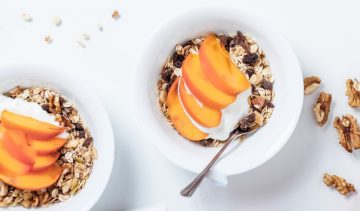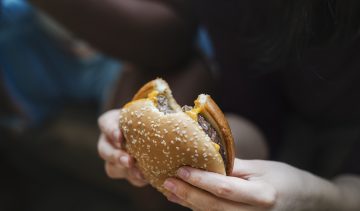Do you ever finish a whole bag of chips without being hungry? Is chocolate your savior when you feel the need to cry? Or do you have any other experience concerning emotional eating? Don’t worry, you’re not the only one. It might help you for a little while, and it might make you feel less sad. But after a few hours, your feelings and emotions return and you feel even worse. You end up in a vicious circle of negative feelings.
A vicious circle
You try to get out of this circle, but you can’t. That’s because this is a lot more complicated than it looks. A decreased appetite is a natural reaction of the body to negative feelings and stress. For some people, the appetite does not decrease or even increases. To prevent emotional eating, it is important that you find out the cause. We have listed a number of possible causes for you:
-
Making associations
Do you always eat cake on your birthday? That’s probably because you’ve learned to eat cake when celebrating your birthday. Your brain associates happiness with eating. This theory also works the other way around, when you’re experiencing negative emotions. Think about eating Ben & Jerry tubs after a breakup. Those examples might seem innocent, but these associations can be the reason you are an emotional eater.
-
You try to regulate your emotions with food
Eating prevents you from being flooded with your emotions, making you think you can handle the situation better.
Food is fuel, not therapy
-
You get the wrong incentives
Your body also responds physically to negative emotions by providing stimuli in your stomach and intestines. Are you regularly hungry after a meal? Then you may be receiving the wrong incentives.
-
Do you suffer from binge eating?
During binge eating, your awareness decreases, and your attention to your nearby environment increases. This weakens your emotions, creating a kind of “flight” response.
If hunger is not the problem, then eating is not the solution
NiceDay
Do you recognize symptoms of emotional eating? In the NiceDay app, you can keep track of how often you think you’re emotionally eating. Does it happen regularly, or are you concerned about it? Make an appointment with your doctor to talk about it. If you want to know more about treatment via NiceDay, click here.











